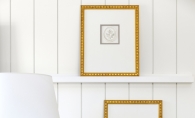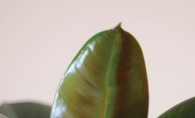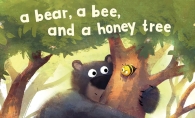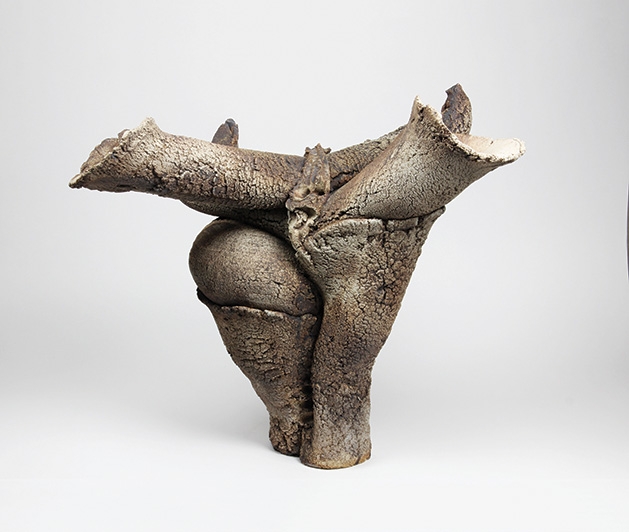
With classes for young children to family programs to advanced courses, there’s something for everyone at the Edina Art Center (EAC). The EAC also offers free community events, such as its monthly author series and juried exhibitions—both of which occur this month.
For insight into how the EAC supports local artists, we feature a few here with different backgrounds, ages and specialties: Leslie Granbeck, Holly Stone, Dee Kotaska
Be inspired!
Ceramic artist Blake Stolpestad remembers taking a ceramics class at Edina High School with a teacher named Christian Blank. “He was a very skilled potter and the whole class looked up to him,” Stolpestad says. The class was a great way to kickstart his experience with art. “Before that, I just played hockey a lot,” he says. “Afterward, [making pottery] was something I could see myself doing.”
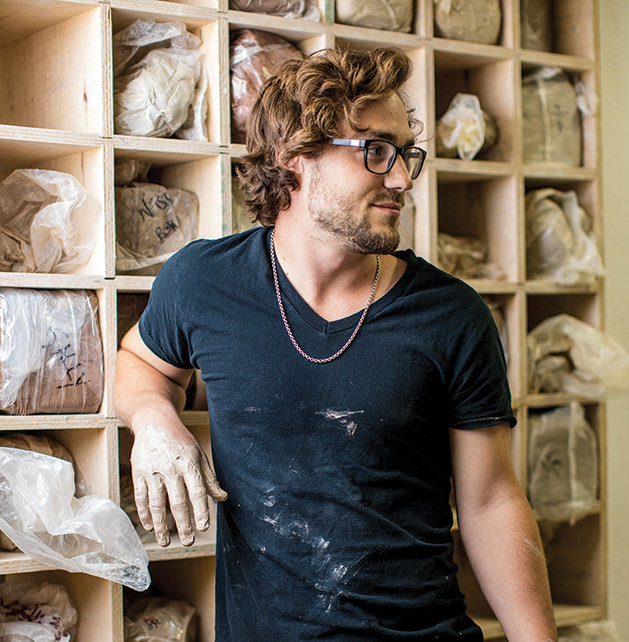
After graduating high school, Stolpestad began poking around the EAC but lacked the funds to take classes. “Sandra Schaughnessy [an assistant manager at EAC] would let me do chores around the studio in exchange for studio time,” he says. He was hooked and decided to study studio arts at the University of Wisconsin-River Falls. As a studio art major, Stolpestad explored a variety of art mediums including drawing, painting and photography. But it is ceramics that most inspires his artistic process. “Clay is different than other mediums because it changes when it’s exposed to air. It hardens and has a liveliness to it. It’s as if you’re breathing life into the actual process of working with it,” Stolpestad says.
That creative liveliness has led Stolpestad from making pots to creating more spontaneous sculpture and impressionist artwork. He talks about the painter Jackson Pollock and how one drip from a paintbrush can be deployed as an aesthetic. “That’s how I see working with clay,” he says. “Vulnerable, wet clay can be assembled in such a way as to let the natural qualities of the material be allowed to express themselves.”
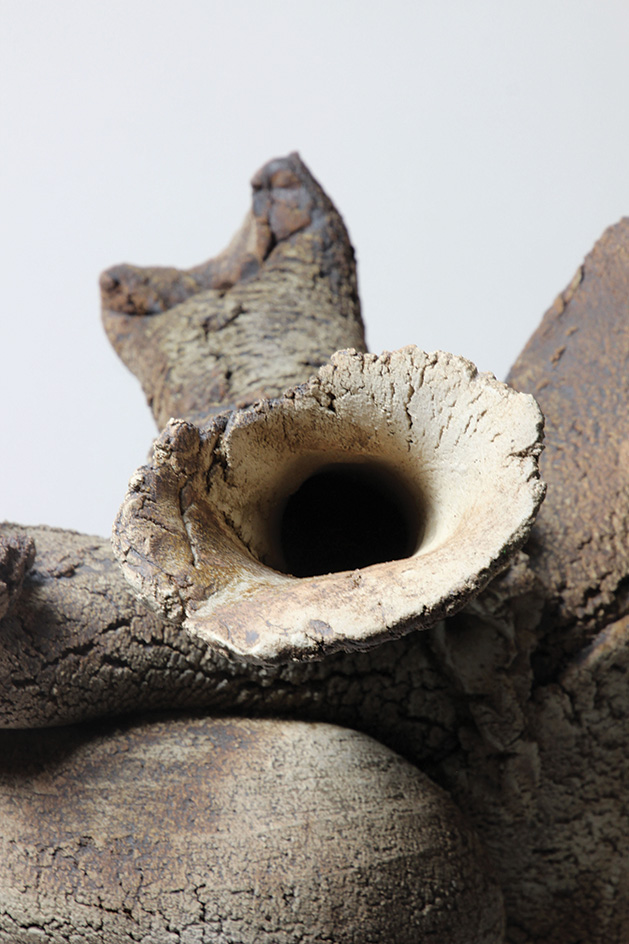
Stolpestad began a potter internship at the EAC after graduating from college. He was responsible for many tasks including things like mixing glazes, helping to finish pieces for summer camps and setting up exhibitions. That led to Stolpestad leading youth summer camps. A new challenge would later be leading adult classes. The experience has helped Stolpestad gain traction in discovering his career path while making the transition from making his own work to teaching others. “It’s tricky when you have internal knowledge that you need to express to others—to be able to break things down into details and communicate those details in a way that’s understandable,” he says. He’s gotten over that hump by watching other teachers and learning from his students that have various learning styles. He says, “The more you teach, the more effective you become in addressing those differing learning styles.”
Stolpestad holds the EAC in high regard and says it’s been central in his artistic development. He plans to head to graduate school for further study and won’t be teaching at EAC any longer. But he says learning and working at the EAC has helped him gain confidence as an art professional.







